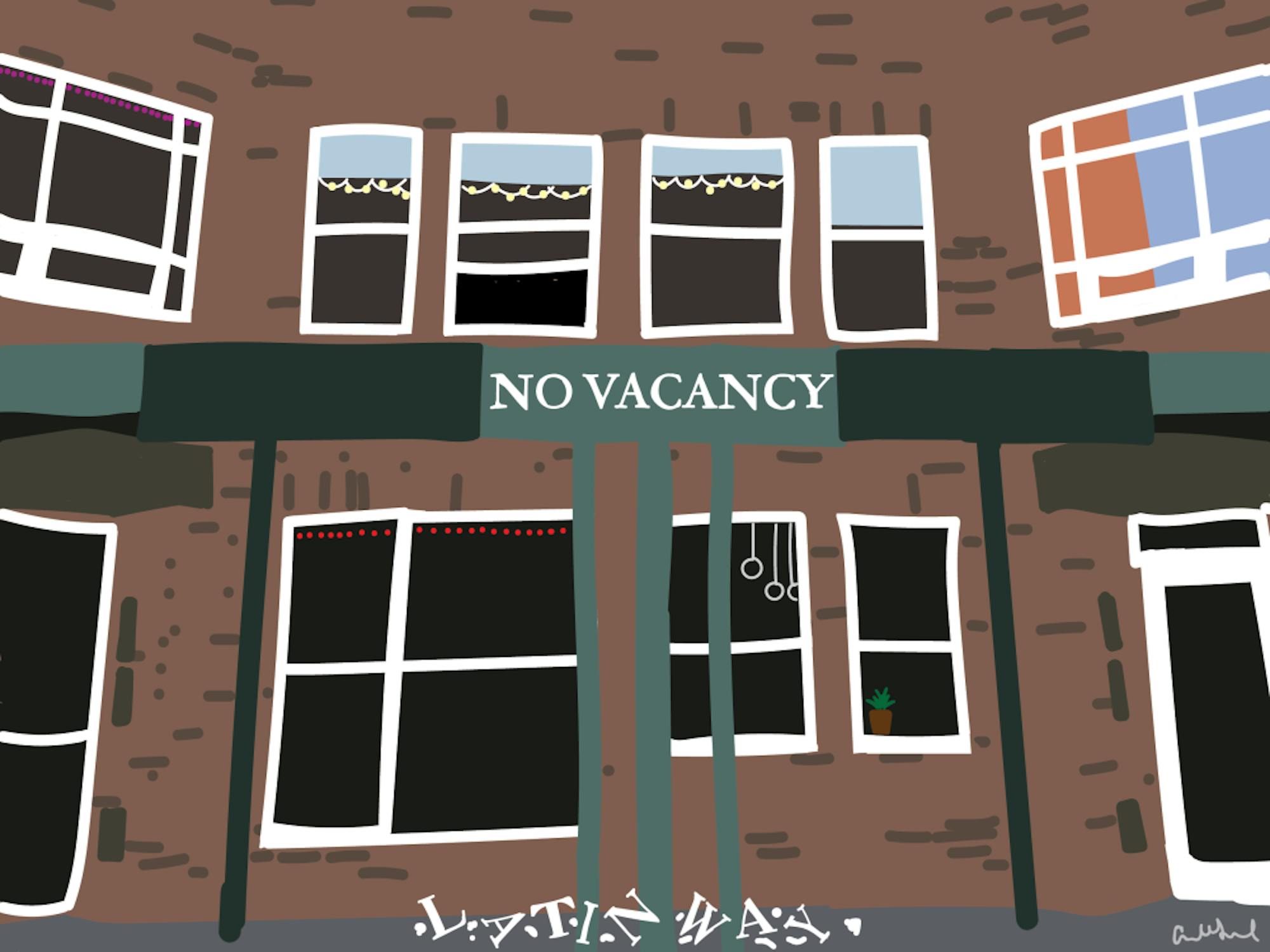The beginning of the spring semester marks not only the start of classes and a return to campus life, but also the culmination of one of the most stressful aspects of student life at Tufts: the housing process. The housing system on campus and its various issues have long been a source of frustration for students. However, the effects of COVID-19 have only exacerbated the problems students have experienced with the system. The pandemic introduced barriers to building friendships and expanding social connections, placing unique pressures on the housing process for rising sophomores. Sudden changes to the housing system and a breakdown in communication on the Office of Residential Life and Learning’s part further compounded these pressures.
Theswitch of West Hall from a sophomore dorm to a first-year dorm along with the placement of more students into general selection were products of the ORLL having to accommodate a larger incoming class. While these changes may have been unavoidable, in order to help address the needs and concerns of the student body, Tufts and the ORLL must improve their communication with students and make a concentrated effort to prioritize the housing issues that reemerge each year.
On March 30, ORLL explained in an email that “West Hall will not be available for sophomores as part of the housing selection process for the upcoming 2021-2022 academic year.” West Hall, a building historically offered as sophomore housing and one of the only housing options with quads, was part of many rising sophomores’ housing plans for the following year.
In the Tufts housing selection process, students firstapply for the number of students in their group, requesting either a single, double, triple, quad or suites of six or 10 people.The news regarding the change made to West Hall wasupsetting to many students not only because it disrupted their housing plans, but also because it was announced last minute.The email announcing the elimination of sophomore quad options in West Hall was sent at 5:12 p.m. on March 30.The intended time for sophomore quad registration was scheduled for 8 p.m. on March 30, leaving just under three hours for students to rearrange housing plans. Additionally, ORLL’s hours of operation end at 5 p.m., meaning that by the time the announcement was made, it was outside of the official hours during which students could receive a timely response to their questions and concerns.
Additionally, issues arose with the housing lottery number system, asreported by the Daily in February.Many students received lottery numbers that did not correspond to their class year.Even a number of graduating seniors, who won’t need housing next year, received lottery numbers.This issue arose due to incorrect information in the Student Information System.Though the ORLL assigned new numbers to all the students affected on a case-by-case basis, this issue created even more confusion amidst an already difficult process, especially because the ORLL did not send any centralized communication clarifying whether or not lottery numbers would be reassigned to all students.
Furthermore, many rising sophomores, who are required to live on campus, were left at the mercy of general selection. Many students with higher — meaning worse — lottery numbers were unable to form the groups they had planned on.In general selection, many were placed in suites — some not entirely full — with people they don’t know.Other students found that there were no rooms left when their sign-up time came.
Rising sophomore Sophia Nunez expressed her frustration with the process.
“I’m so confused on how Tufts is making it mandatory for us to live on campus sophomore year but they don’t have enough housing for us,” Nunez wrote in an email to the Daily. “It’s honestly just so overwhelming to not know where I am going to be living next year on top of everything else.”
Nunez still hasn’t been told where she will be housed.
While some of these problems seemed inevitable given the complexities of housing larger class sizes during a pandemic, the real issue lies with the ORLL’s lack of communication with the student body. Releasing the West Hall news just hours before students were about to go through the group formation process was deeply irresponsible and caused students needless stress. Many scrambled to adjust their groups accordingly, creating a ripple effect through the student body. While the lottery number situation was not the direct fault of Residential Life, their subsequent communication on the matter was sorely lacking. Furthermore, it is frustrating that little to no clarity was provided on the process itself and in response to students’ questions once problems arose.
In order to help ease the process for the student body, the ORLL needs to be more clear and understanding in their communication. By providing accessible information on how the housing process works while remaining upfront and timely about changes made, the ORLL can make the process far less stressful for students. Furthermore, Tufts must financially prioritize on-campus housing more than it has in the past. Some of the issues within the housing process this year directly resulted from shortages in on-campus housing, with the school only being able to housearound 62% of the student population.
On April 29, Tuftsannounced that it will invest in new on-campus development projects, which includes the construction of a high-density, on-campus residential hall for undergraduates. While this is a necessary step in addressing the shortage of on-campus housing, Tufts must continue to come up with solutions that make the housing process more manageable for its students.
We do not expect the housing process to be a perfect system. However, the level of anxiety and frustration students have toward the system will not change unless Tufts actively makes strides to improve the housing process.






